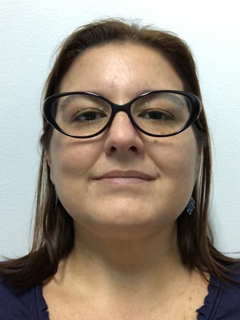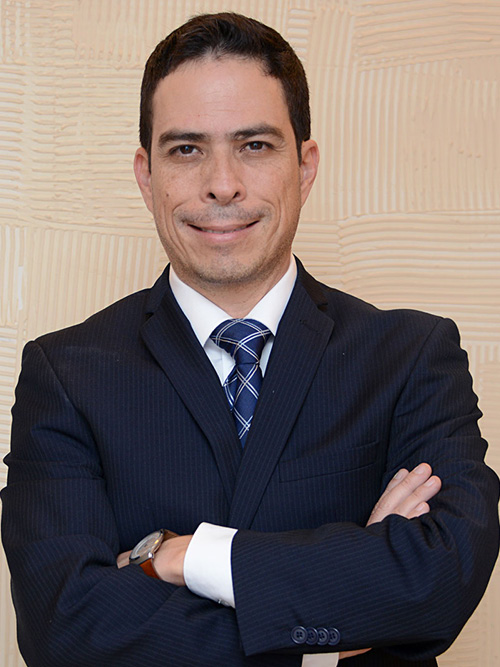 |
Eugenia Corrales- Aguilar
Professor
Center for Research in Tropical Diseases (CIET) Universidad de Costa Rica (UCR)
Dr. Corrales-Aguilar is the Coordinator of the Virology Section of the Tropical Diseases Research Center (CIET). With over 5 years of experience in vector-borne diseases, including dengue field surveys of wildlife such as bats, the study of the human immune response against arboviruses and the molecular epidemiology of human dengue and Zika isolates have been her main topics of interest. The facilities of the Medical Virology include an RNA/DNA extraction room with hoods and a MagNa Pure extraction robot, separate rooms for RT-PCR with a LightCycler 490 from Roche and several traditional PCR machines, several BSL-2 virus working hoods (dengue in Costa Rica is endemic, therefore dengue (and Zika) are worked in BSL-2 facilities
|
 |
Esteban Chaves Olarte
Professor in Medical Microbiology
Dr Chaves- Olarte's academic training and professional experience has been dedicated entirely to the study of virulence mechanisms used by bacterial pathogens. This effort has led to the publication of 45 scientific contributions including original articles and book chapters. He currently has and H -index of 25. He has focused his research on two bacterial pathogens that use completely different virulence strategies in order to produce disease, on one hand to address the pathogenic strategies implemented by the toxigenic pathogen C. difficile particularly focusing on the cellular consequences induced by the toxins produced by this bacterium. On the other hand, he has devoted considerable efforts to understand the molecular and cellular strategies used by Brucella abortus in order to achieve intracellular replication, an event that is crucial for its virulence. In parallel to those activities, Dr. Chaves- Olarte has been deeply involved in building up a Central American Network devoted to Research and Training in Tropical Diseases through grants financed by the Swedish International Developing Agency. The latter experience has allowed him to clearly understand the needs and strategies in order to promote capacity building and scientific research in low and middle-income settings as those found in Latin America. Dr. Chaves-Olarte feels that he is at an optimal stage in his scientific career in order to coordinate an ambitious project that addresses a sound scientific question as the one posed in the current application. He understands that addressing this question will have a positive impact in several aspects: (i) locally, unraveling the molecular nature of C. difficile circulating strains in LA, (ii) globally, understanding universal mechanisms used by C. difficile to produce disease and (iii) strategically, promoting the collaboration among LA research groups and US research groups that will ultimately lead to the implementation of better strategies to combat infectious diseases in LA.
|





